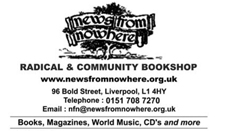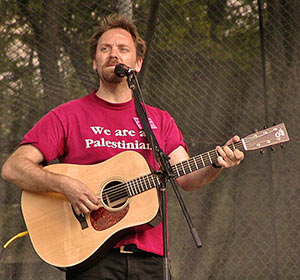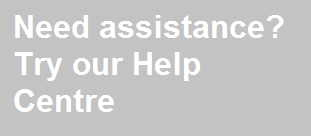MOST importantly the Linux aficionado knows the Linux kernel, this is what runs most of the machines that the Internet is built on and the majority of embedded devices around like car stereos, DVD players, everything down to toasters. You’ll recognize the kernel (by his medals) if you have ever had a blue screen moment on your Windows PC it might give you a kernel error – it’s a small package of software which is a building block for the operating system software. Li nux or Lin ux, whichever way you pronounce it your wrong so get over it. But in terms of politics it is the third way.
Questions: Tell us a bit about you to start with?

Dan: Well, I live on Merseyside and I’m a mad Liverpool FC supporter for my sins. I’ve been a musician and a geek for as long as I can remember. I went to music college, got very involved with different bands and even worked as a sound engineer for a few years. I’m fascinated by record production and can bore most people rigid with my anorak-like knowledge of music and it’s history. I switched my focus and got a degree in Computer Science a little later, when work in sound engineering was drying up. I’ve worked as a programmer building custom solutions for the NHS (not that recent £12billion disaster I hasten to add) and I still host websites for people, do bits of server admin and web development, all kinds. I’ve become a big supporter of Open Source development in the last few years and now I try to promote the benefits of that to others. I make various podcasts, write articles for magazines and websites, and generally waffle about events in the Open Source world. It keeps me busy.
Rathole Radio - tell us about rathole radio? There is an ethos behind it, tell us a bit more?

Dan: Rathole Radio is a music show I started earlier this year and I’m enjoying it a lot. As I mentioned before, music is something of an obsession for me, both making and listening to it. I don’t know any other art form with the same universal appeal.
Everyone has a favourite song or a favourite band. It’s something that connects us all. The idea behind RR is to share music I’m enjoying with the listeners and also try to introduce them to things they may not have heard otherwise. I’m a big believer in Free Culture and the Creative Commons movement. There’s a lot in the press these days about how the Internet is killing music and musicians livelihood, but that simply isn’t true. I want to counter that argument. Smart artists are embracing the Internet and using the power it provides to collaborate and spread songs made in someone’s bedroom all around the world, instantly. That’s incredible when you think about it. Some people don’t like change and will always fight against it, protecting their old monopolys. I’m always on the side of musicians
being one myself, and I believe it’s possible to make money in the new digital world without being a luddite. Treat your fans like people, connect with them and the rewards will come. On the show I play a wide range of music from all genres and that’s another thing that’s important to me. I love all kinds of music and I believe there’s good and bad in everything. Too many people hear something bad and dismiss a whole collection of music because of that. I try to be open minded and give everything a chance once. That’s the message I’m trying to spread.

Bob: How many more listeners does the Linux Outlaws show get in camparison?
Dan: Oh loads more. RR is still pretty new and LO is far more established. I’d say Outlaws gets about 6 or 7 times as many listeners at the moment but that balance is changing, and I hope both shows will continue to grow obviously. It’s hard to get exact download figures because people copy the shows and mirror them on their own servers. LO gets about ten thousand downloads a week now though, which is very satisfying.
Bob: Open source and Free culture have been around since the 60’s hippy movement, do you know why it is once more on the rise. And what is a creative commons license??
Dan: I think they’ve always been relevant. Creative Commons actually links into a tradition that goes back thousands of years. The concept of “the commons” and knowledge sharing are well established. It’s only in the last 100 years or so we’ve changed that behaviour. Intellectual property and copyright are still very new concepts in human history. Years ago people would share songs, stories, recipies and more just by word of mouth. They grew, were modified, improved and embellished. It was a natural process. These days in technology and art we’re told to protect our ideas at all costs and keep them secret, because that’s the only way to realise the value of them. That’s not true and it’s not the way to make progress. Far from promoting it, modern patent and IP laws are actually stifling innovation. People are scared to try out new things because they might get sued all the time. Knowledge has to be shared or it dies out. The Creative Commons licenses offer artists a way to license their work on their own terms, and allow people to make sensible uses of it. It actually empowers artists. As a musician I want to hear what people can make with my music, get those ideas back and build on them, collaborate. There are many different CC licenses with different clauses and restrictions, you have to find the right one for you, but personally I have no problem with people using my work as part of their own new works on 2 conditions. Firstly they have to always put clear creditation to me for any relevant parts, secondly they have to share any derived work back on the same terms I gave it to them, so I and others can use it in turn. I think that’s reasonable. It’s all legally binding using the same Copyright laws we already have. It turns them on their head and is often referred to as Copyleft because of this. There are many licenses in the Creative Commons suite and I would suggest any artists interested have a look at creativecommons.org it’s a great resource. It can be confusing at first but I’m always happy to help if I can.
 Bob: Is it true that you and a bunch of others went into News From Nowhere - possibly the most respected alternative bookshop in existence - and helped repair their old computers, and how do you repair an old iPod and make it record audio?
Bob: Is it true that you and a bunch of others went into News From Nowhere - possibly the most respected alternative bookshop in existence - and helped repair their old computers, and how do you repair an old iPod and make it record audio?
Dan: Wow, that’s a lot of questions. Let me answer them in turn. It is true that Liverpool LUG (Linux User Group) repaired a lot of old computers for News From Nowhere yes. I am a member of LivLUG (as we call it for short) and I do my bit, but I really can’t take any special credit for that, it’s a team effort. We got together all their old hardware, some people also donated old computers they had and we made as many decent working systems out of them as we could. We swapped parts between them and consolidated the stock I suppose you would say. We installed Ubuntu Linux and we support the machines for the Liverpool Social Centre (located under the bookshop) as free public Internet access. We hold monthly LUG meetings in the building and it was the least we could do in return really. They deserve support for the good work they do there. As for the iPods that’s actually quite simple, you just need to download and install some new software on them. It’s called Rockbox, it’s developed by a large community of people and it’s Open Source of course. It’ll work on most old iPods and a lot of other mp3 players from other manufacturers too, there’s a list on their website. It adds many functions you don’t normally get on those devices, recording is just one of them. There’s support for new file formats, games, organisers and more. It allows us to make better use of the hardware I suppose and you don’t need to be an expert to install it. There’s more info at www.rockbox.org
Bob: The Linux crew meet up and write code together, is that a prerequisite of being a coder. What’s to be gained by sharing?

Dan: Yes that’s true, Linux is developed collaboratively by people around the world sharing ideas and skills. I wouldn’t say it’s a prerequisite of being a coder that you have to share code, but there’s definitely something inate in us that wants to share how clever we are and show off to some degree. The developers can earn lots of money working for the largest companies in the world and still get their names known. For many it’s about the respect of peers and a sense of fulfillment. I have no idea the names of the people who built Windows or Mac OS (Apple) and who’s responsible for what part. So when something breaks who do I ask? I can go to a company helpline, but that rarely results in a very satisfactory experience. Because developers in the Open Source world are putting their names and reputations to every line of code, they are much more careful. There’s accountability for quality and performance, I believe it’s a better development model. They get the credit for their acheivements and also the blame for their failures. Everyone knows who did what. The benefits to the users are better more secure software, it’s worked on by more people and there are more eyes tracking down bugs and fixing them, adding features and improving things quicker. The pace of releases in the Open Source world is unbelievable. We have a section for new releases in our podcast and there’s 8-10 new things every week without fail. That’s exciting. I think it’s good for coders and end users. It’s also good for large companies, who use Open Source software all the time. It benefits them because they save money on license fees, maintainence and so on, while still getting top industry grade software. Google, IBM, Novell, SUN, the list goes on and on, they can all see the benefits of Open Source.
Bob: Wouldn’t you prefer a top of the range Apple Mac with snow leopard loaded than the Linux driven machine you have?
Dan: Apple produce some nice products and lots of people love them. I would never criticise anyone for using what they prefer. It’s not for me though. I feel I can get the same hardware and superior software for a lot less money than Apple want to charge me. I then have the freedom to do what I want with it, I’m not tied into any one company and I’m happy with that. I might not look so fashinable sitting in a coffee shop without a glowing Apple logo, but that’s not something I worry about. Everyone has to decide what’s best for them and go with it. I try not to preach to people. If they ask me and they genuinely want to know, I’m happy to help them learn about how to get Linux and other Open Source softeware. I like people to know they have a choice, what they choose after that is up to them.
Bob: You are organizing a gig next year – tell us who is headlining plus when, where, how much…. ?
Dan: Yeah that’s right, it’s all very exciting. It’s really only an idea that occurred to me before Christmas. American singer songwriter David Rovics and British punk stalwart Attila The Stockbroker are headlining with other guests. It’ll be Friday the 30th of April at the Bad Format Social Club in Liverpool. I'll also by playing myself as I often do on Rathole Radio. Tickets will be £5 in advance or £7 on the door. Anyone interested should keep an eye on RatholeRadio.org for announcements, and listen to the podcast of course. That goes without saying hehe.
 Bob: How did you come across David Rovics. I also hear that there is a digital community event planned in the new year. What’s that about and why?
Bob: How did you come across David Rovics. I also hear that there is a digital community event planned in the new year. What’s that about and why?
Dan: I first saw David last year in Liverpool when he supported Billy Bragg at The Picket. I was really impressed by his songs and his feel for the political pulse. He always hits the nail on the head and he bills his music as “songs of social significance”. I later discovered that he releases his music under CC licences and is very involved in all of that. I played his music on my show and even had him on as a guest a few episodes ago. We’ve staying in touch since then. I (along with others) organised a Free Culture/Open Source event last year called OggCamp, run by Linux Outlaws and another Linux podcast called Ubuntu UK. It went really well and about 150 people turned up on the day. It was held in Wolverhampton for various reasons but the next one to be in Liverpool, on 1st-2nd May 2010 at The Black-E right next to the gate in Chinatown. It's rolled together with the gig the night before and I believe we can make it bigger and better. We can give people a great weekend in this marvellous city, which I’m very proud of. The gig will kick off a larger weekend of Free Culture, Free Software and Free Thinking like non seen before, so don't miss it. I announced the details on my blog recently.
Bob: Finally, if there was one kernel of knowledge you wanted to pass on what would that be?
Dan: Nice pun. That’s a tough question. I suppose if I could give people one piece of advice it would be to take a chance in life and give everything your best. It can be scary sometimes doing something new but that’s what keeps us alive, and keeps things interesting. Whatever it is that you want to do, if you believe in it and you work hard enough you can make it happen. There’ll be knocks and set backs along the way, people who want to bring you down, but give it your best and you’ll have no regrets. You might discover that where you end up is not where you aimed for at the start, but that can be fun too, sometimes it’s a better place. You only get one shot at life (unless you’re a Bhuddist), so make every day count. You don’t know what’ll happen tomorrow.
You can see Dan's first outing on his Ustream Channel and listen in to Rathole Radio and the Linux outlaws. You can subscribe to all of Dans shows on these pages.


